Use of Cookies
Our website uses cookies to facilitate and improve your online experience.
The Buddhist practice of Shakyo is a means of spreading the Buddha Way among people. It is also for praying for the fulfillment of one’s greatest wish. But today, besides these overtly religious purposes, we can do shakyo in order to reflect on ourselves, or to attain mental well-being by mindfully tracing the sacred scriptures. It does not matter if one has faith in Buddhism or not, or if one’s writing is good or not.
When we look back at the history of shakyo, we first find this passage in the Nihonshoki; “…gathering a group of transcribers, the Buddhist Tripitaka was transcribed at Kawaharaji temple1 for the first time…” Later at the time of Emperor Shomu (701~756), specialists in sutra transcription were appointed and they transcribed the sutras to store or to distribute to Kokubunji temple2 in various locations. Then after around the Heian Period (794~1192) people started privately doing shakyo as a Buddhist practice, or as a prayer/wish for healing and consoling the souls of their ancestors. Thus, shakyo has a long history.
Shakyo has been wonderful nourishment for many people to bring about peace of mind in their spiritual lives. It is so because when we do shakyo with harmonized body and mind, we are immediately in tune with Buddha’s teaching. Shakyo has been a great spiritual support for way-seekers of all time. As people living in the present-day situation, we can cherish quiet and serene moments fostered by shakyo, and make this calligraphy as Zen to deeply look at the self an essential part of our everyday life.
The Heart Sutra is very short but it beautifully captures an outline of the Buddhadharma. Thus, we encourage beginners to start shakyo from this sutra.
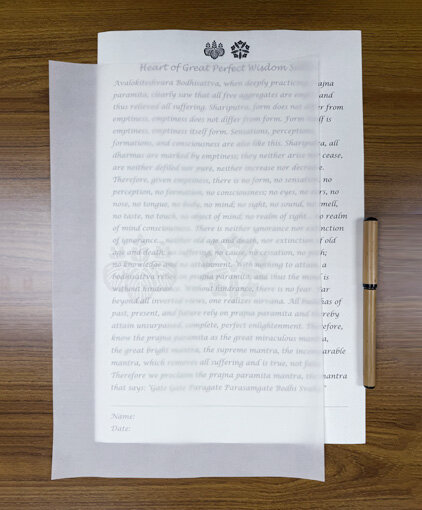
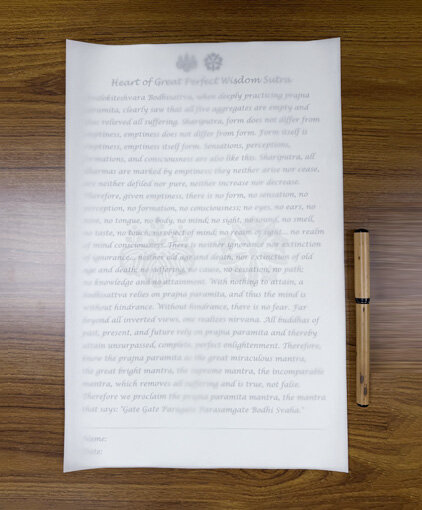
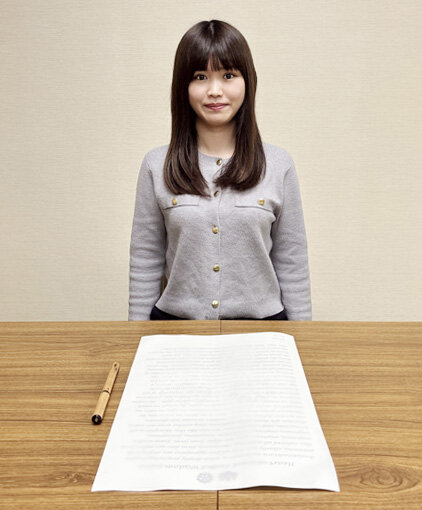
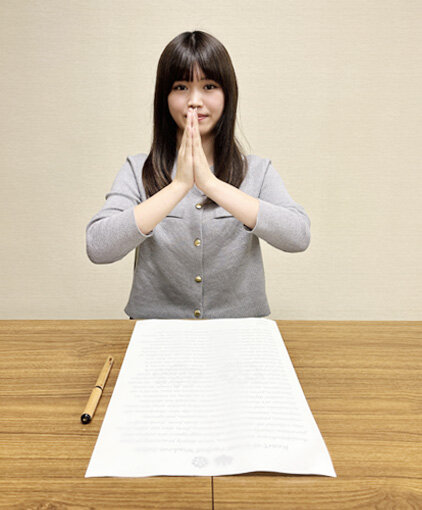
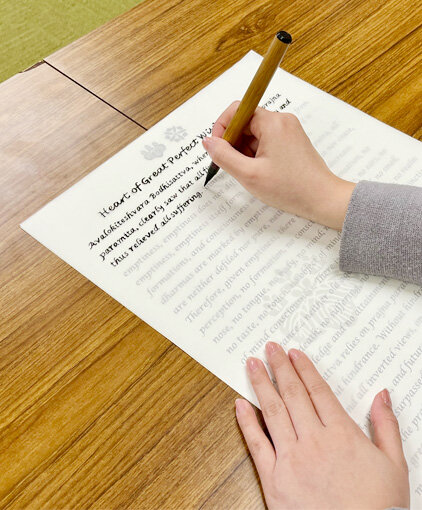
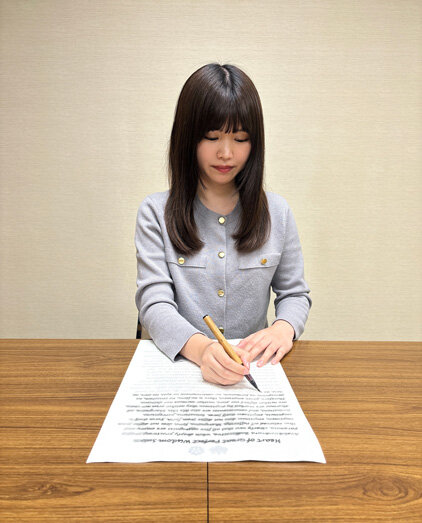
Click the links to download the template and instructions.
Two fonts are available for the template. Please use either one of them.
Font Type A Font Type B Instructions
We have made “Shakyo (tracing the sutras)-kit” as a new teaching material for dissemination. If you are interested in this Shakyo-kit, please contact us.
Soto Zen Buddhism International Center
1691 Laguna Street
San Francisco, CA 94115 U.S.A. (at Sokoji)
Tel: 415-567-7686
Fax: 415-567-0200
Mail: info@sotozen.com
